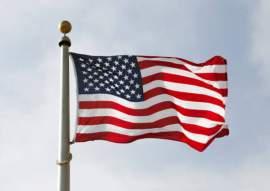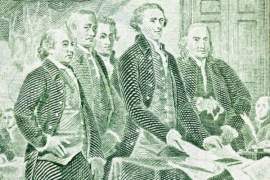
Understanding the 24th Amendment

Popular In Constitution
Purpose Of Lifetime Appointment And Pros And Cons Enumerated Powers Bicameral Legislature Background Article 3 Of The Constitution We The People 1st Amendment Who Wrote The Constitution Judicial Review Equal Protection Clause 5th Amendment 10th Amendment Three Fifths Compromise
The 24th Amendment is one that arose due to yet another Amendment to the United States Constitution, the Fifteenth Amendment. The 15th Amendment granted men the right to vote, prohibiting the Government from using "race, color, or previous condition of servitude" as a means to deny such a right. As a result, those with racist and prejudice sentiments against African-Americans were finding ways to circumvent the provisions found in the 15th Amendment by placing literacy tests, threats of violence, intimidation, and poll taxes. All of these methods were implemented as a way to deter African-Americans from reaching the polls to exercise their right to vote.
The 24th Amendment specifically deals with the poll tax. It prohibits Congress and the states from implementing a poll tax or any other kind of tax. The states ratified the amendment on January 23rd, 1964.
The 24th Amendment states, "The right of citizens of the United States to vote in any primary or other election for President or Vice President...shall not be denied or abridged by the United States or any State by reason of failure to pay any poll tax or other tax". Poll taxes began to be implemented, particularly in the southern states, to prevent African-Americans from voting in elections.
Just one of the methods used to prevent African-Americans from reaching the polls, it was not considered to be in violation of the Fifteenth Amendment because it did not directly use race as a condition to pay the poll tax. As a consequence, many poor whites also were affected by the poll taxes. Poll taxes also would accumulate if they were not paid from election to election, further restricting the ability of African-Americans to vote because of the lack of economic means.
Poll taxes began to appear in the South in the 1890s and were largely unregulated due to the fact that there were no Federal law enforcement officials to protect the rights of African-Americans to vote. All of the states of the Confederacy had poll taxes in place by 1902.
The poll taxes themselves were at one point ruled not to be unconstitutional in the Breedlove v. Suttles case because it did not violate the provisions set forth by either the Fourteenth Amendment or the Fifteenth Amendment. However, it is the Breedlove case that managed to raise awareness of the unfairness of poll taxes and created the movement for a Constitutional Amendment banning them in 1939. However, it would be the Smith v. Allwright case that would make a more definitive move toward the banning of the poll tax.
The Smith case would ban the "white primary", which would prohibit any person who was not white from voting. The poll tax would still be implemented simply because, at the time, it was still not considered to be in violation of Constitutional rights. However, it would not be until President John F. Kennedy took office that the poll tax repeal would be brought back as a public concern and finally passed as the 24th Amendment.


















